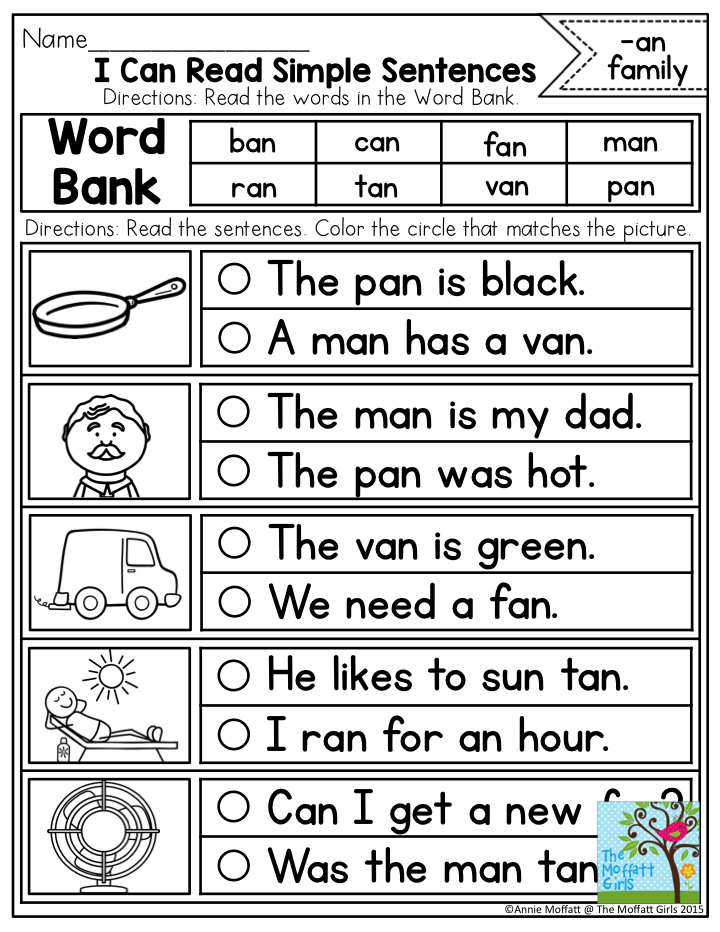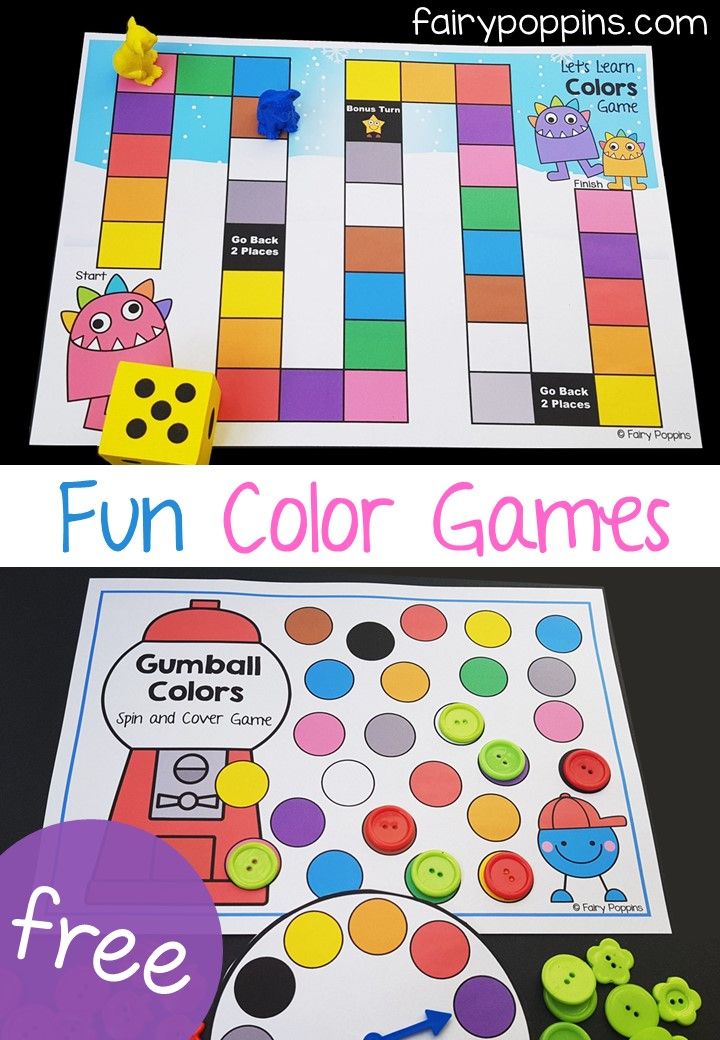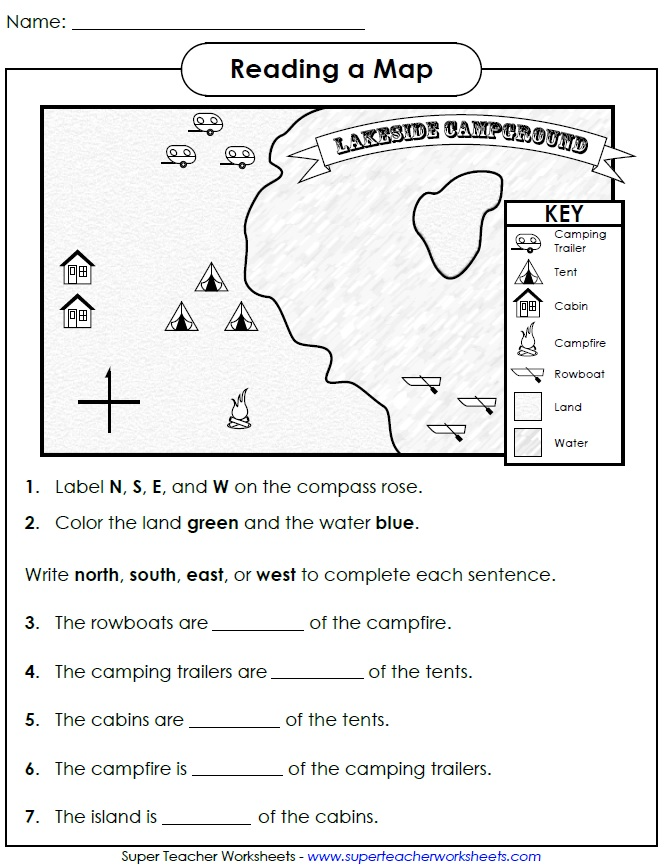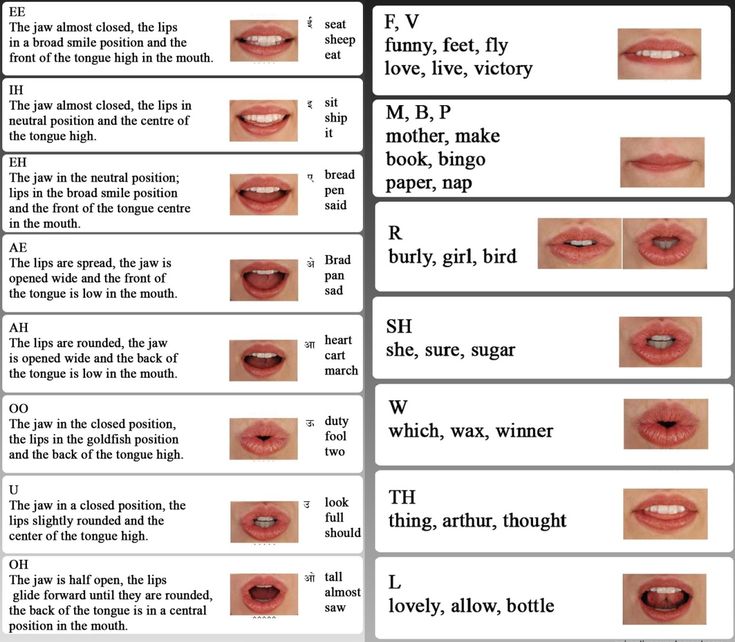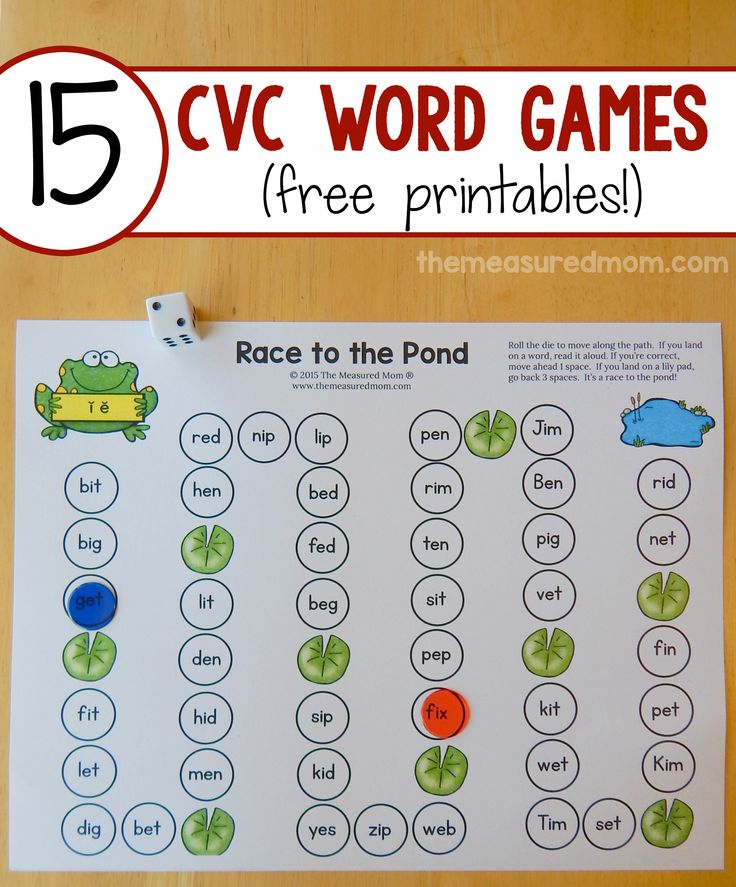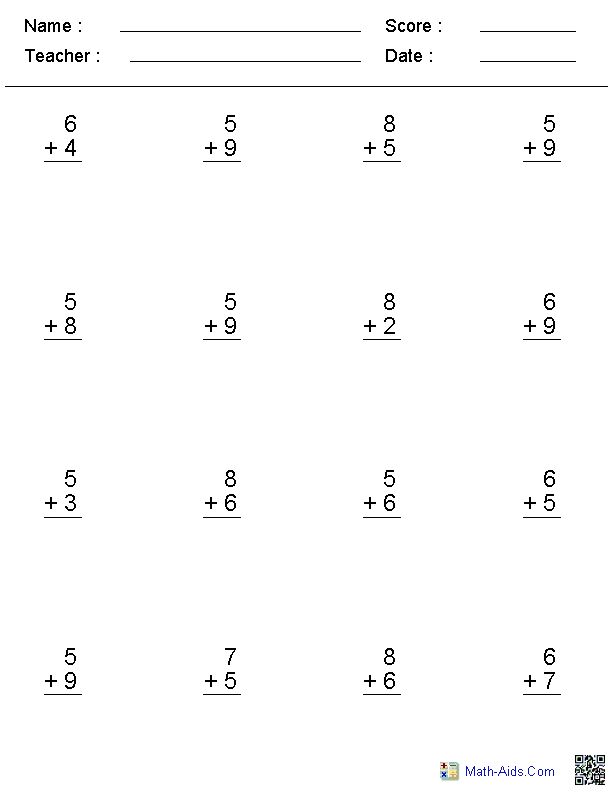Simple sentence in english for beginners
ENG 1001: Sentences: Simple, Compound, and Complex
A common weakness in writing is the lack of varied sentences. Becoming aware of three general types of sentences--simple, compound, and complex--can help you vary the sentences in your writing.
The most effective writing uses a variety of the sentence types explained below.
1. Simple Sentences
A simple sentence has the most basic elements that make it a sentence: a subject, a verb, and a completed thought.
Examples of simple sentences include the following:
- Joe waited for the train.
"Joe" = subject, "waited" = verb
- The train was late.
"The train" = subject, "was" = verb
- Mary and Samantha took the bus.
"Mary and Samantha" = compound subject, "took" = verb
- I looked for Mary and Samantha at the bus station.
"I" = subject, "looked" = verb
- Mary and Samantha arrived at the bus station early but waited until noon for the bus.
"Mary and Samantha" = compound subject, "arrived" and "waited" = compound verb
Tip: If you use many simple sentences in an essay, you should consider revising some of the sentences into compound or complex sentences (explained below).
The use of compound subjects, compound verbs, prepositional phrases (such as "at the bus station"), and other elements help lengthen simple sentences, but simple sentences often are short. The use of too many simple sentences can make writing "choppy" and can prevent the writing from flowing smoothly.
A simple sentence can also be referred to as an independent clause. It is referred to as "independent" because, while it might be part of a compound or complex sentence, it can also stand by itself as a complete sentence.
2. Compound Sentences
A compound sentence refers to a sentence made up of two independent clauses (or complete sentences) connected to one another with a coordinating conjunction.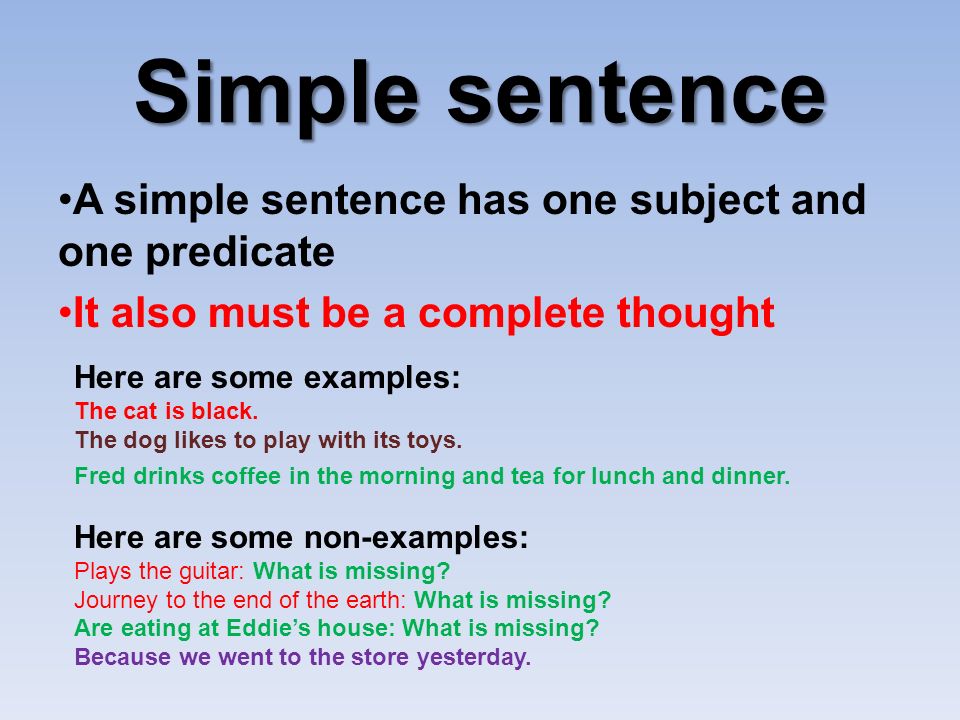 Coordinating conjunctions are easy to remember if you think of the words "FAN BOYS":
Coordinating conjunctions are easy to remember if you think of the words "FAN BOYS":
- For
- And
- Nor
- But
- Or
- Yet
- So
Examples of compound sentences include the following:
- Joe waited for the train, but the train was late.
- I looked for Mary and Samantha at the bus station, but they arrived at the station before noon and left on the bus before I arrived.
- Mary and Samantha arrived at the bus station before noon, and they left on the bus before I arrived.
- Mary and Samantha left on the bus before I arrived, so I did not see them at the bus station.
Tip: If you rely heavily on compound sentences in an essay, you should consider revising some of them into complex sentences (explained below).
Coordinating conjunctions are useful for connecting sentences, but compound sentences often are overused.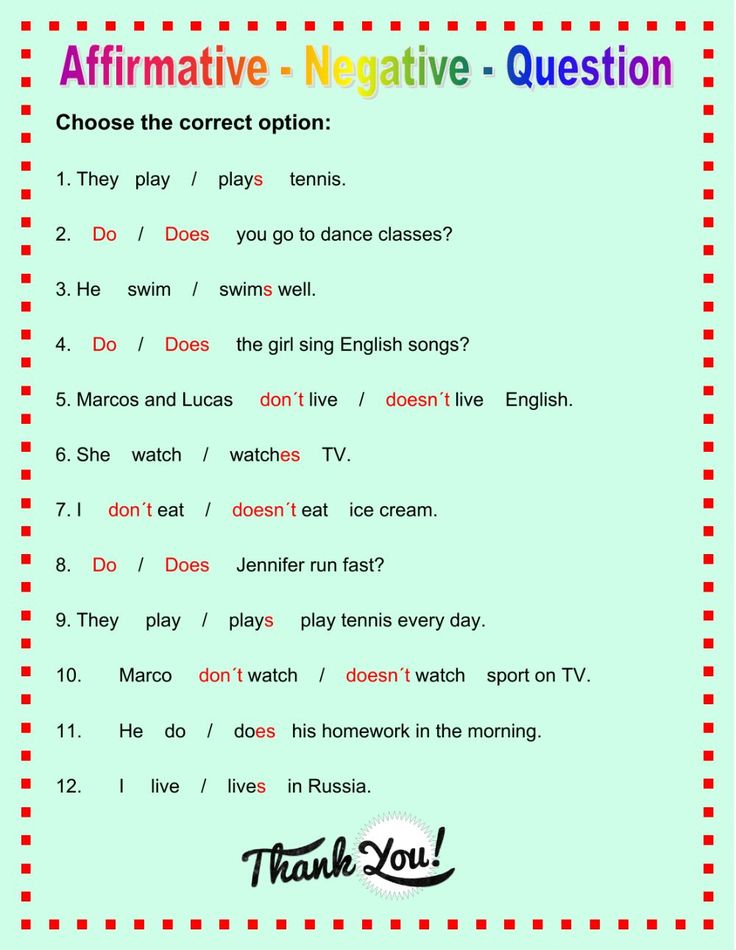 While coordinating conjunctions can indicate some type of relationship between the two independent clauses in the sentence, they sometimes do not indicate much of a relationship. The word "and," for example, only adds one independent clause to another, without indicating how the two parts of a sentence are logically related. Too many compound sentences that use "and" can weaken writing.
While coordinating conjunctions can indicate some type of relationship between the two independent clauses in the sentence, they sometimes do not indicate much of a relationship. The word "and," for example, only adds one independent clause to another, without indicating how the two parts of a sentence are logically related. Too many compound sentences that use "and" can weaken writing.
Clearer and more specific relationships can be established through the use of complex sentences.
3. Complex Sentences
A complex sentence is made up of an independent clause and one or more dependent clauses connected to it. A dependent clause is similar to an independent clause, or complete sentence, but it lacks one of the elements that would make it a complete sentence.
Examples of dependent clauses include the following:
- because Mary and Samantha arrived at the bus station before noon
- while he waited at the train station
- after they left on the bus
Dependent clauses such as those above cannot stand alone as a sentence, but they can be added to an independent clause to form a complex sentence.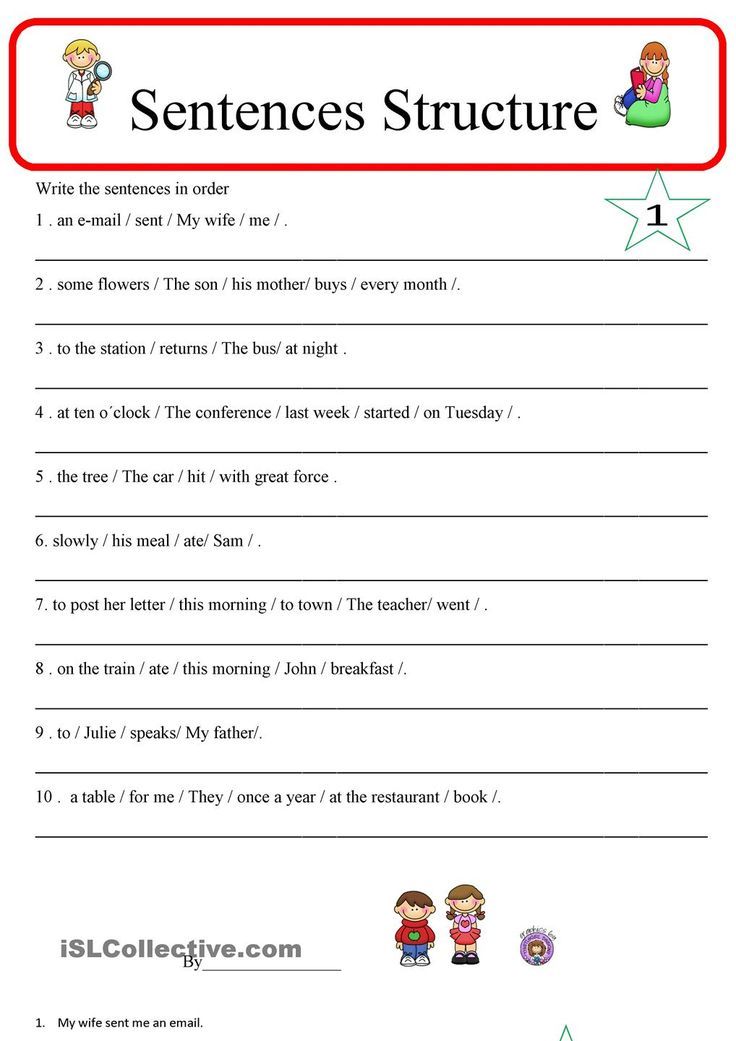
Dependent clauses begin with subordinating conjunctions. Below are some of the most common subordinating conjunctions:
- after
- although
- as
- because
- before
- even though
- if
- since
- though
- unless
- until
- when
- whenever
- whereas
- wherever
- while
A complex sentence joins an independent clause with one or more dependent clauses.
The dependent clauses can go first in the sentence, followed by the independent clause, as in the following:
Tip: When the dependent clause comes first, a comma should be used to separate the two clauses.
- Because Mary and Samantha arrived at the bus station before noon, I did not see them at the station.
- While he waited at the train station, Joe realized that the train was late.
- After they left on the bus, Mary and Samantha realized that Joe was waiting at the train station.
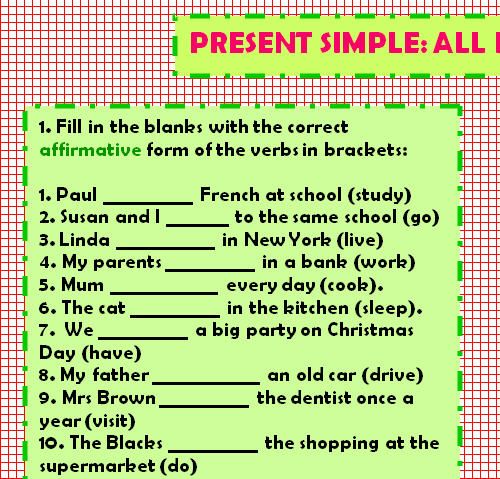
Conversely, the independent clauses can go first in the sentence, followed by the dependent clause, as in the following:
Tip: When the independent clause comes first, a comma should not be used to separate the two clauses.
- I did not see them at the station because Mary and Samantha arrived at the bus station before noon.
- Joe realized that the train was late while he waited at the train station.
- Mary and Samantha realized that Joe was waiting at the train station after they left on the bus.
Complex sentences are often more effective than compound sentences because a complex sentence indicates clearer and more specific relationships between the main parts of the sentence. The word "before," for instance, tells readers that one thing occurs before another. A word such as "although" conveys a more complex relationship than a word such as "and" conveys.
The term periodic sentence is used to refer to a complex sentence beginning with a dependent clause and ending with an independent clause, as in "While he waited at the train station, Joe realized that the train was late.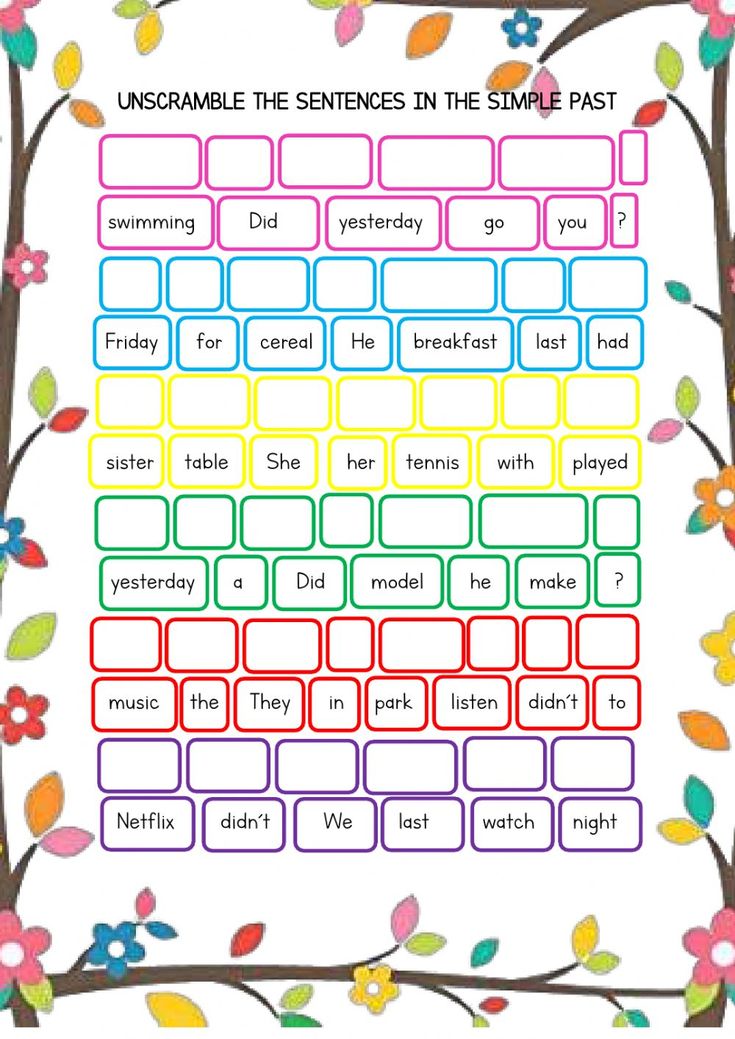 "
"
Periodic sentences can be especially effective because the completed thought occurs at the end of it, so the first part of the sentence can build up to the meaning that comes at the end.
Beginning Sentences with "And" or "Because"
Should you begin a sentence with "and" or "but" (or one of the other coordinating conjunctions)?
The short answer is "no." You should avoid beginning a sentence with "and," "or," "but," or the other coordinating conjunctions. These words generally are used to join together parts of a sentence, not to begin a new sentence.
However, such sentences can be used effectively. Because sentences beginning with these words stand out, they are sometimes used for emphasis. If you use sentences beginning with one of the coordinating conjunctions, you should use these sentences sparingly and carefully.
Should you begin a sentence with "because"?
There is nothing wrong with beginning a sentence with "because."
Perhaps some students are told not to begin a sentence with "because" to avoid sentence fragments (something like "Because Mary and Samantha arrived at the bus station before noon" is a sentence fragment), but it is perfectly acceptable to begin a sentence with "because" as long as the sentence is complete (as in "Because Mary and Samantha arrived at the bus station before noon, I did not see them at the station.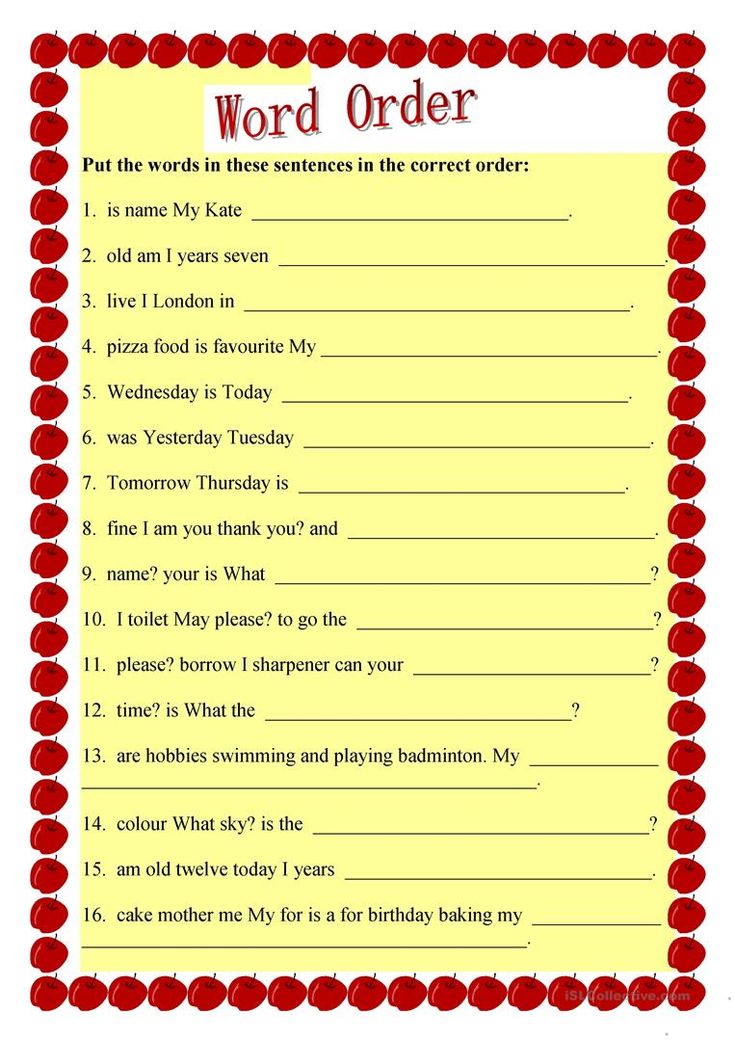 ")
")
Watch It!
35+ Simple English Sentences You’ll Want to Use at Your New Job
By Yuliya Geikhman Last updated:
If you’re nervous about speaking English in a new job, don’t try to memorize complicated things.
Your coworkers won’t be testing you on your grammar knowledge, and they probably won’t care if you use an impressive vocabulary word.
All you need to do is remember some very simple English sentences, and you’ll do just fine!
Contents
- Tips to Remember for Speaking English at a New Job
- 35+ Simple English Sentences You Must Know for Your New Job
- Introducing yourself
- Saying hello
- Saying goodbye
- Asking where things are
- Making “small talk”
- Going to lunch together
- Offering a ride
- Submitting reports and ideas
- Meetings
- Asking for help/clarifications
Download: This blog post is available as a convenient and portable PDF that you can take anywhere.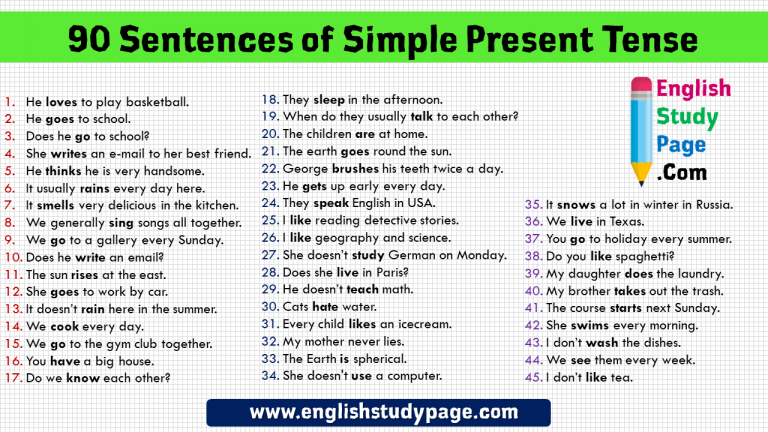 Click here to get a copy. (Download)
Click here to get a copy. (Download)
Tips to Remember for Speaking English at a New Job
Before you step through that door for the first time, remember:
- Tell people you’re learning English. They will usually be understanding. You might be surprised at how patient people are when they know you’re still learning English.
- Ask people to repeat things you don’t understand. Don’t be embarrassed to admit you didn’t understand something.
- Ask people to correct you. Work is a perfect place to improve your English. Ask to be corrected and you will be learning all day.
- Speak up. Sometimes when people are not sure of what they’re saying, they mumble or speak quietly. This just makes them harder to understand!
- Don’t worry about being “right,” just “understood.” It doesn’t matter if your sentence didn’t use perfect grammar, as long as the person you were speaking to understood what you meant.
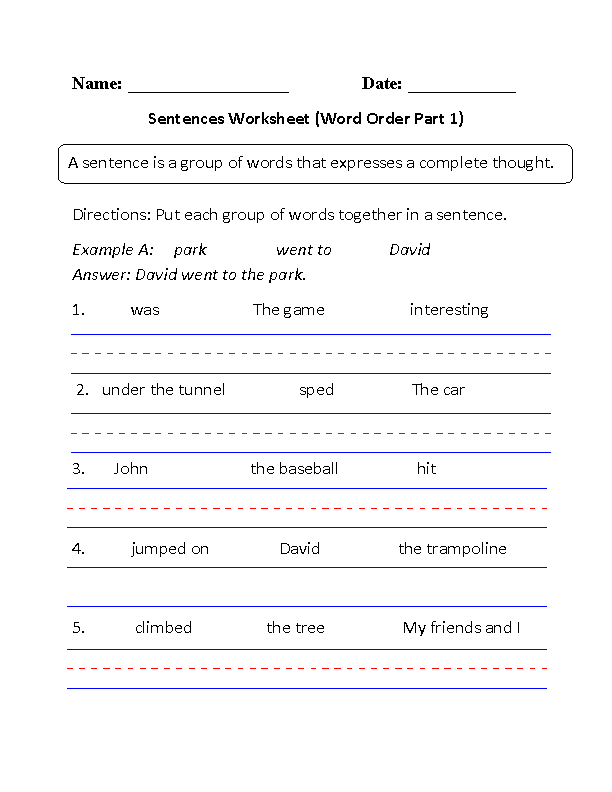 And if you’ve asked them to correct your English, you can try to get it right next time.
And if you’ve asked them to correct your English, you can try to get it right next time.
- Prepare before you go. Before you go to your job for the first time, prepare for the potential conversations you might have. One way is by studying the sentences in this post. Another is by watching authentic videos of real-life work scenarios.
For example, you can watch some workplace-themed videos on the FluentU program. FluetU is a resource that uses authentic English videos to teach you to speak the way your native English-speaking coworkers do. Unlike your coworkers, each video has subtitles, and you can click on any word to pause the video and see its definition.
You can watch a wide variety of videos: There are comedies like clips from “The Office” and a dinosaur office satire (video that makes fun of a topic), as well as more serious options like tips for how to make small talk in a business environment and even work etiquette and outfit ideas.
- Be confident and be yourself.
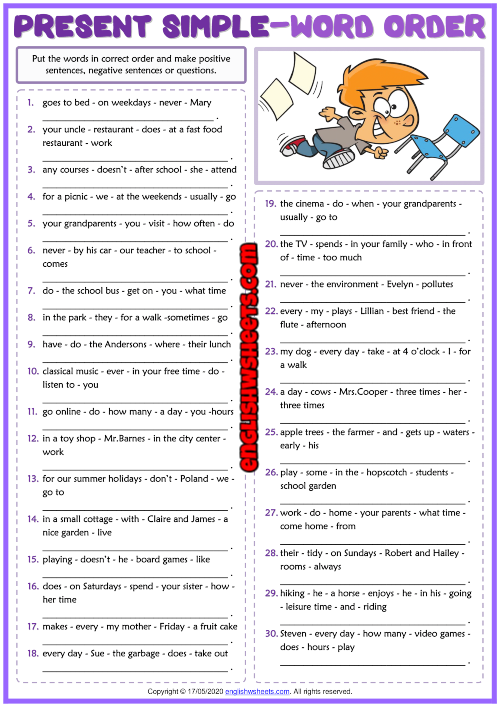 You’ll do fine!
You’ll do fine!
Below are many simple English sentences you can use in different situations at work, even if you’re a beginner to learning English. Take a deep breath… and you’re ready for work!
35+ Simple English Sentences You Must Know for Your New Job
Introducing yourself
- “Hi [name], nice to meet you.” Say this to someone you just met for the first time. Repeating their name will help you remember it.
- “I’m still learning English, so please speak slowly.” This is a polite way to ask someone to slow down when they’re speaking English.
- “I just started working here. I’m the new [name of your job].” You can tell people you’re new with this sentence.
- “I’m working in the [name] department. What do you do here?” Many jobs have different departments, which are sections of the jobs that concentrate on one part of the job. For example, the IT (Information Technology) Department works with setting up and fixing the company’s computers.
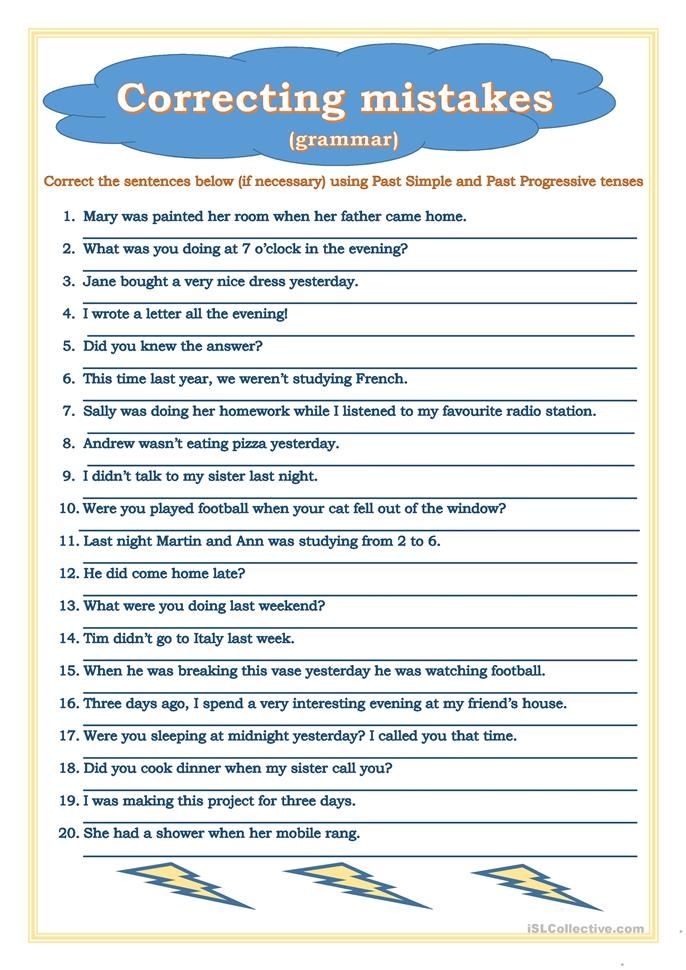 When you introduce yourself, tell the person which department you work for, and ask them for theirs.
When you introduce yourself, tell the person which department you work for, and ask them for theirs.
Saying hello
- “Good morning/afternoon/night.” Say “good morning” until around noon. After noon, say “good afternoon.”
- “How’s everything?/How’s it going?” These are more common ways to say “How are you?”—which, by the way, is really not used that often! You can find more ways to say hello in this blog post.
- “How was your weekend?/How did your weekend go?” It’s nice to ask on a Monday if someone’s weekend was nice or interesting.
- “I’m doing fine, thanks./Not bad, thanks./Pretty good, thanks.” If someone asks you how you’re doing, you can respond this way. Remember that when people ask “how are you” as a hello, they usually don’t actually want a real answer. It’s just polite to ask!
Saying goodbye
- “See you later/tomorrow.” This is an informal but polite way of saying goodbye to someone.
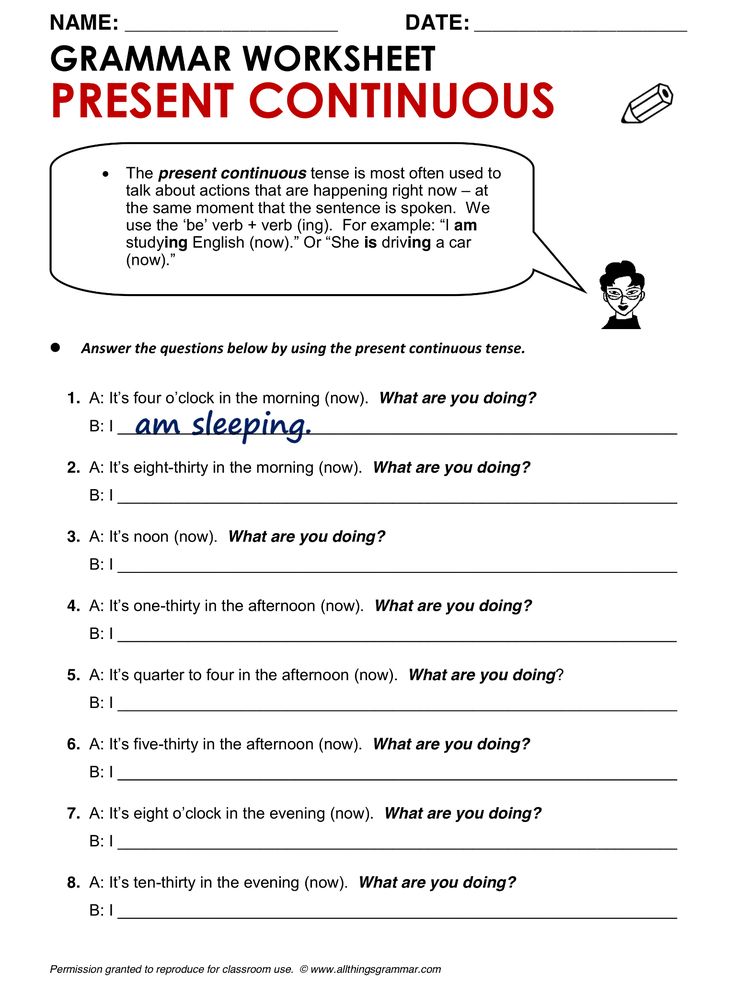
- “Good night.” If you are leaving in the evening or late afternoon, you can say “good night” as a way of saying goodbye.
- “Have a nice weekend.” When you’re leaving on Friday, it’s polite to tell people to enjoy their days off.
Asking where things are
- “Where can I find the (bathroom/coffee maker /[anything])?” Until you learn where everything is, you can use this sentence to ask. An even simpler way to ask would be “Where is the [bathroom, etc]?”
- “Where are we meeting?” If you are not sure where a meeting will be held, you can use this question.
- “Where can I leave this?” This is how you ask when you don’t know where to put your coat, lunch, umbrella or something else you brought into work.
Making “small talk”
Small talk is light conversation. It can be about the weather, food, anything that isn’t too serious. If you’re in the same room as someone, in an elevator together or just standing near each other and you aren’t working, making small talk can open the conversation and form friendships and connections.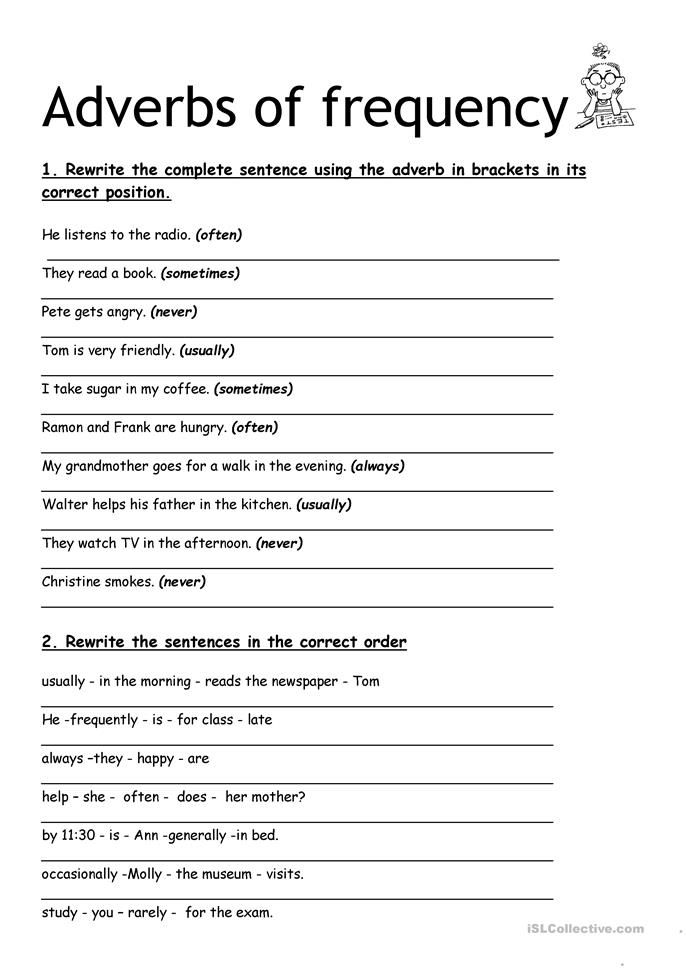 It also saves you from uncomfortable silences!
It also saves you from uncomfortable silences!
- “I love your (shoes/necklace etc.). Where did you get it/them?” Complimenting someone (saying something nice about a person) makes them feel good, and asking a question afterwards starts a conversation.
- “I can’t believe how hot/cold it is today!” The weather is always a safe topic for small talk. You can use this line for almost any kind of weather. If it’s a beautiful day you can say “I can’t believe how nice it is today.”
- “So what do you do here?” If you haven’t met a person yet, you can ask them what their role at the office is.
- “How long have you been working here?” This is another good question you can ask to start a conversation.
Going to lunch together
- “Let’s get a coffee sometime.” This is a casual way to suggest meeting for a quick coffee and maybe having a nice conversation. It doesn’t have a specific time attached to it, it’s just a general idea for the future.

- “Let’s grab lunch.” You can use this phrase to suggest going out for a quick lunch.
- “I know a good place nearby.” Use this sentence if you want to suggest a nice place to eat lunch.
- “Want to order out?” If you don’t want to go out for lunch, this is how you ask if anyone wants to order delivery.
- “I’ll have the same/I’ll have what (s)he’s having.” When you’re out for lunch, you might not know what you want. Sometimes it’s easier to just ask for the same thing as one of your coworkers. Remember that you can only use this phrase after someone else has ordered!
Offering a ride
- “Need a lift?/Need a ride?” If you’re driving home from work and someone is going in your direction, it’s a nice gesture to offer them a ride.
- “Thanks, I appreciate it.” If someone offers you a ride, this is a polite way to accept it.
- “I’m good, but thanks for the offer.
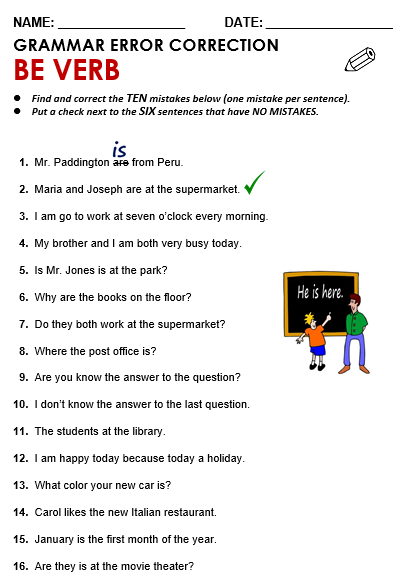 ” On the other hand, if you’d rather decline (say no to) getting a ride, you can say it this way.
” On the other hand, if you’d rather decline (say no to) getting a ride, you can say it this way.
Submitting reports and ideas
- “If you have a moment, I would love your thoughts on this.” This is a polite way of asking your boss or coworker for input on something you wrote or did.
- “I have the report/information you asked for.” This is just a simple way of saying you finished the job you had.
Meetings
- “Do you mind if I record this?” A good way to make sure you don’t miss anything important at a meeting is to record it so you can listen to it again later. Ask for permission first by using this sentence.
- “Excuse me, can you please speak up?” This is a polite way to ask someone to speak louder if you can’t hear them.
- “Do we still have that meeting after lunch?” Make sure you know when all the meetings are so you don’t miss them.
Asking for help/clarifications
- “I don’t understand this.
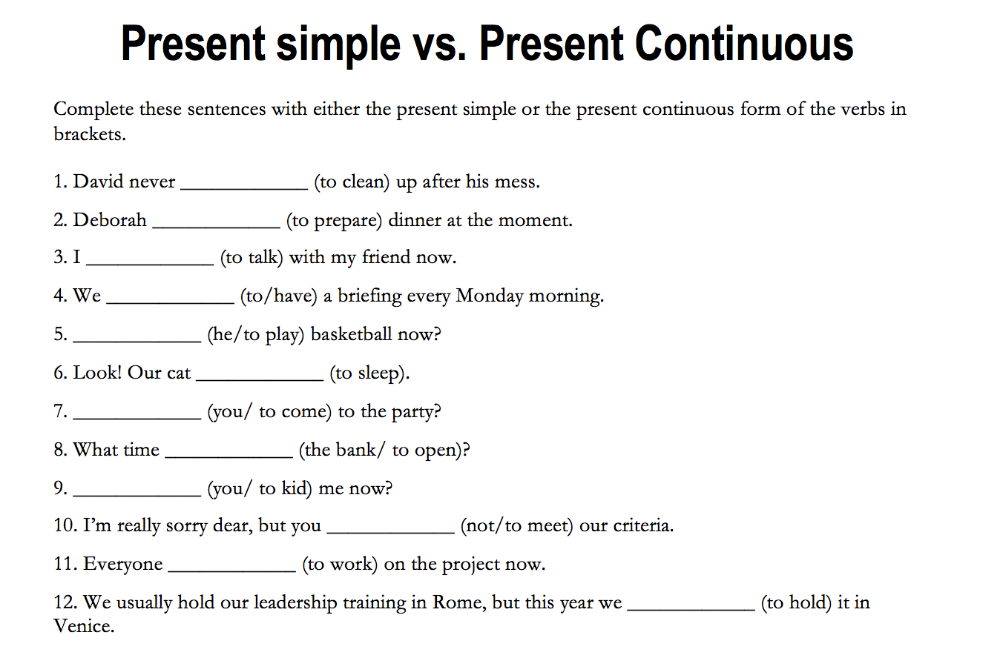 Can you please explain it?” Don’t be afraid to ask this question. It’s better to understand everything completely than to think you understand, and then waste time doing something the wrong way.
Can you please explain it?” Don’t be afraid to ask this question. It’s better to understand everything completely than to think you understand, and then waste time doing something the wrong way.
- “Let me see if I understand this.” Say this sentence, then repeat what you just heard. This is a great way to show that you were paying attention, and to make sure you understood everything correctly.
- “I’m having trouble with [something]. Do you know who can help me?” Before you ask someone for help, find out if they’re the right person for the type of problem you’re having.
- “Do you have a minute?” Before you ask for help, make sure the person isn’t busy.
- “Can you please repeat that?” If you didn’t hear something, you can ask the person to say it again. If you still don’t understand, you can also ask “Can you please rephrase that?” This question asks the speaker to say something again, but using different words.
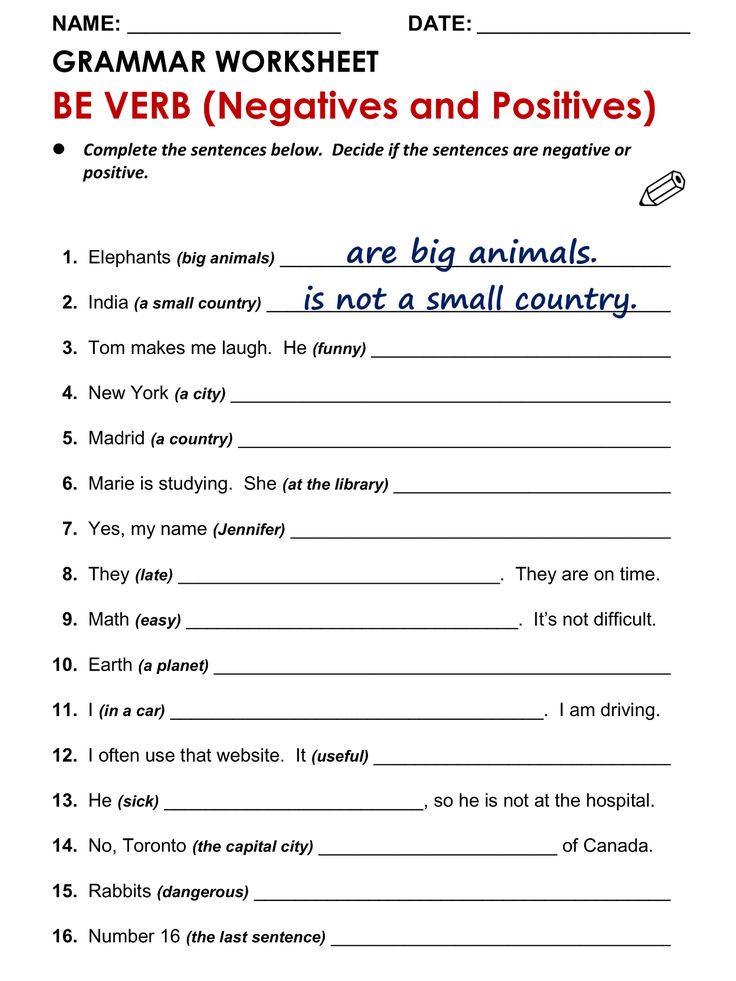 It may help you understand what they’re saying better.
It may help you understand what they’re saying better.
- “Are there any rules I should know about?” Every job has its own rules and ways of doing things. Find out what they are so that you can follow them.
See how easy these sentences are? Use these simple sentences so you don’t have to worry about how to speak, and you can save your energy for impressing your boss.
Download: This blog post is available as a convenient and portable PDF that you can take anywhere. Click here to get a copy. (Download)
« How to Effectively Improve Your English Reading Skills on Your Own
15 Superb Songs with Lyrics to Learn English Through Karaoke »
Simple sentences in English
WAR
All dictatorships create external enemies and repression to sit on the throne forever.
If you can't tell the truth from a clever lie, then think about laws, about freedom of speech, how often and where power has changed.
CNN News BBC News Telegram Wikipedia
Sentence – is a separate statement with intonational and semantic completeness. A sentence is a word or group of words, organized according to the rules of grammar, that carries a specific message, question, exclamation, or call to action.
- It's raining. - It's raining.
- Go outside! - Get outside!
- What are you doing? - What are you doing?
Sentences of the English language, as in Russian, depending on how many grammatical bases (combinations of subject and predicate) in the sentence, are divided into simple and complex sentences.
- Simple sentences
- There is my house. - This is my home.
- I have to go to the university. - I have to go to the university.
- Complex sentences
- There is the house where my family lives.
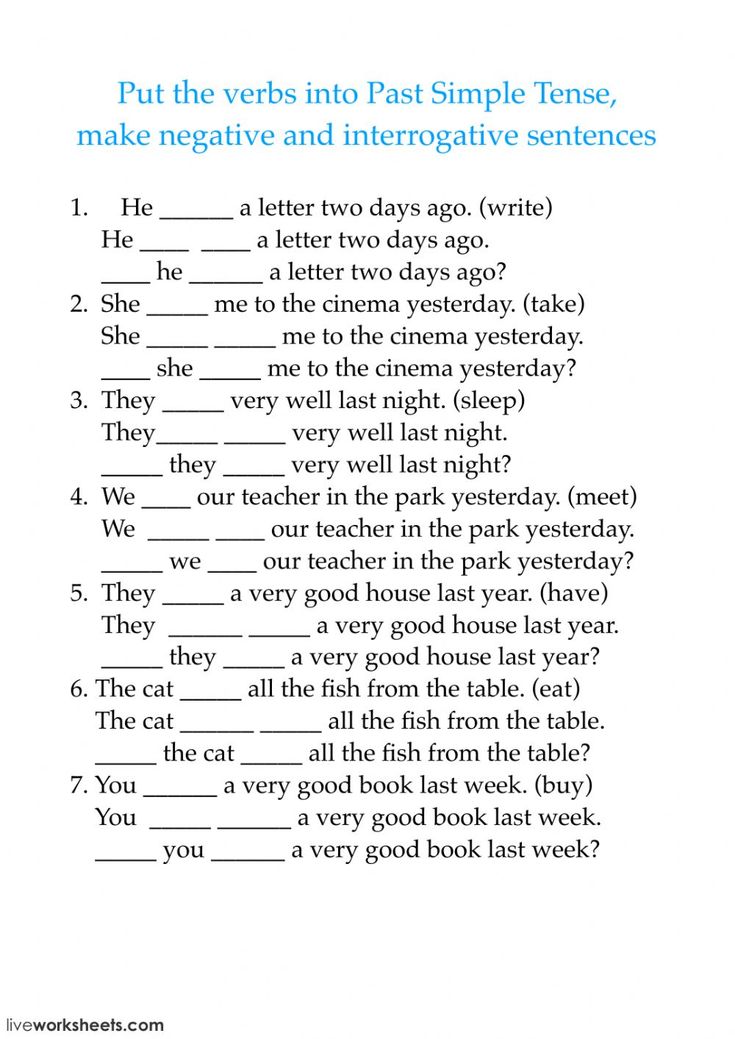 This is the house where my family lives.
This is the house where my family lives. - I have to go to the university now but I will come back soon. I have to go to the university now, but I will be back soon.
Simple sentence (a simple sentence) is a sentence in which there is only one grammatical basis (one combination of subject and predicate).
- Kate likes dogs. Kate loves dogs.
- We go jogging every Sunday. We go jogging every Sunday.
- They didn't go to school last year. They didn't go to school last year.
Simple sentences for the purpose of saying
All simple sentences , depending on the purpose of the statement, can be narrative , interrogative , imperative , exclamatory .
Narrative sentences
Declarative sentence (declarative sentence) - a sentence that communicates a certain fact or information in affirmative or negative form .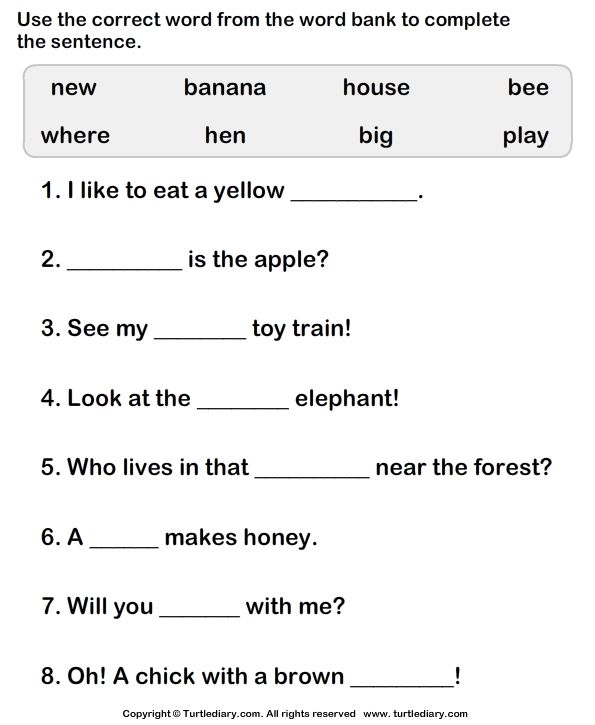 The intonation of such a sentence is mainly descending, direct word order is used (subject before the predicate).
The intonation of such a sentence is mainly descending, direct word order is used (subject before the predicate).
- My name is Paul. - My name is Paul.
- Kate is good at cooking. Kate cooks well.
- I don't like honey. - I don't like honey.
- George hasn't finished his work yet. George has not finished his work yet.
In English, as a rule, there can be only one negation in the sentence , in contrast to the Russian language, where there can be a double negation (the use of particles together not, neither, and negative pronouns, adverbs, etc.) .
- I know nothing. - I do not know anything.
- I don't know anything. - I do not know anything.
- We met no one yesterday. We didn't meet anyone yesterday.
- We didn't meet anyone yesterday. We didn't meet anyone yesterday.
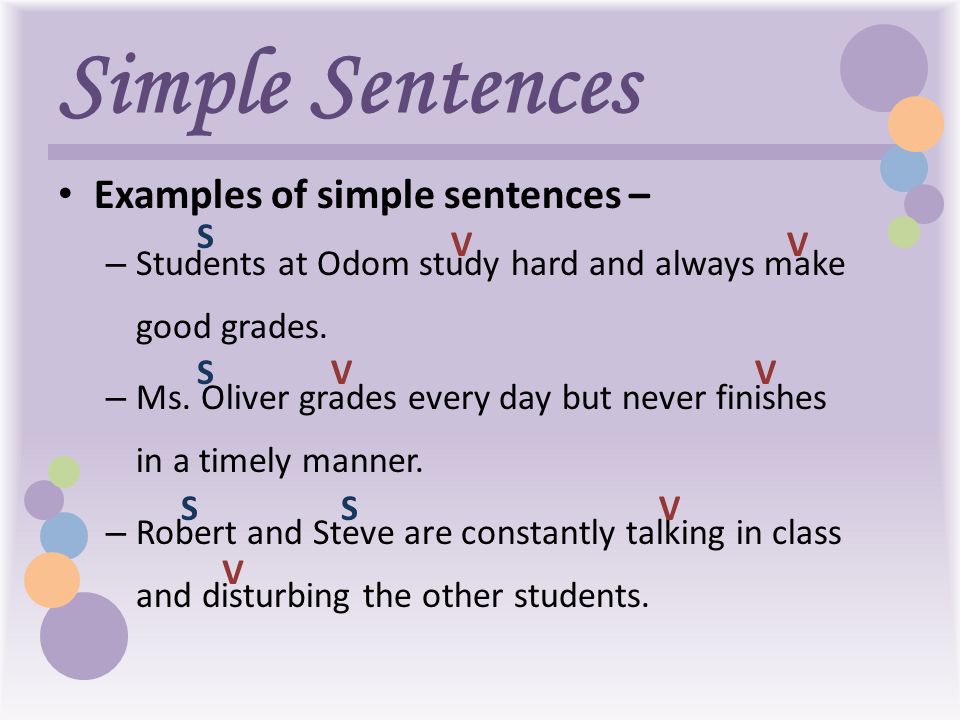
The double negative in English can be used to further strengthen the negative, but this is not common.
- I ain't got no money. - I don't have any money.
- We don't need no education, we don't need no thought control. “We don't need any education, we don't need any thought control.
Interrogative sentences
Interrogative sentence (interrogative sentence) - a sentence that expresses a question. They are formed using indirect word order (predicate before the subject), as well as interrogative words. Interrogative sentences are discussed in detail in the article types of questions.
- Who is there? - Who's there?
- What are you doing now? - What are you doing now?
- Do you like learning English? – Do you like learning English?
Imperative sentences
Imperative sentence (imperative sentence) - a sentence that encourages the interlocutor to act, that is, it expresses an order, request, command, invitation, etc.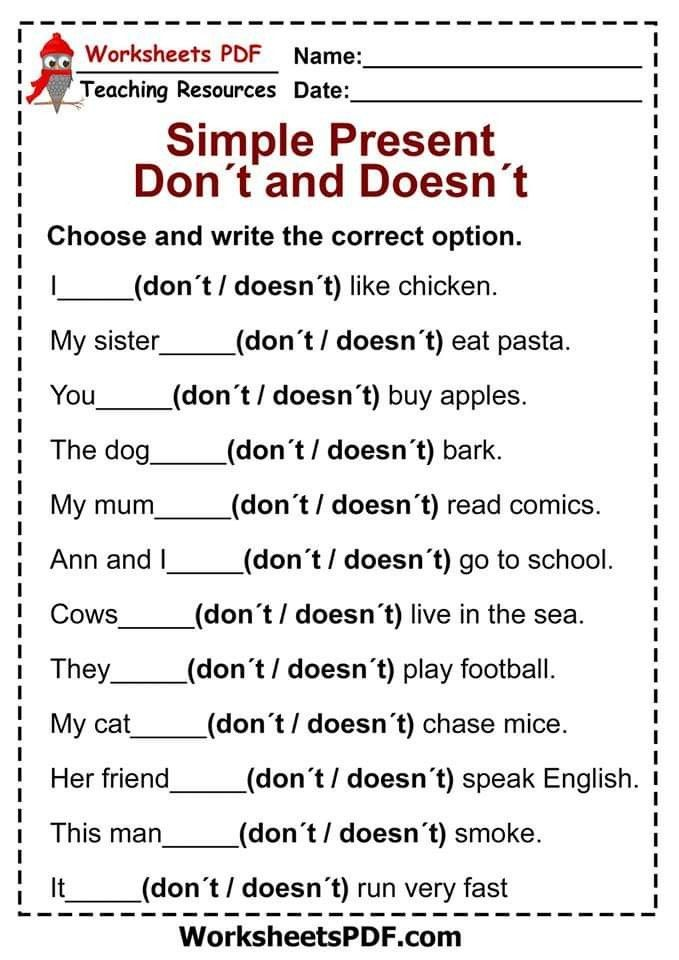 Such sentences often omit the subject you (you, you), as it is clear from the context, the verb is used only in the infinitive form without the particle to .
Such sentences often omit the subject you (you, you), as it is clear from the context, the verb is used only in the infinitive form without the particle to .
- Watch this! – Look at this!
- Listen to me. - Listen to me.
- Go and buy some bread, please. - Go buy some bread, please.
Sometimes in imperative sentences the pronoun you is not omitted in order to emphasize emotionally and strengthen an order or command.
- You sleep now. - You're going to bed now.
- We will rest and you drive. We will rest and you will drive the car.
- I will go to the shop and you stay at home. - I'm going to the store, and you stay at home.
In order to form a negative imperative sentence (prohibition or request), the auxiliary verb do is always used in the negative form, even with the verb to be .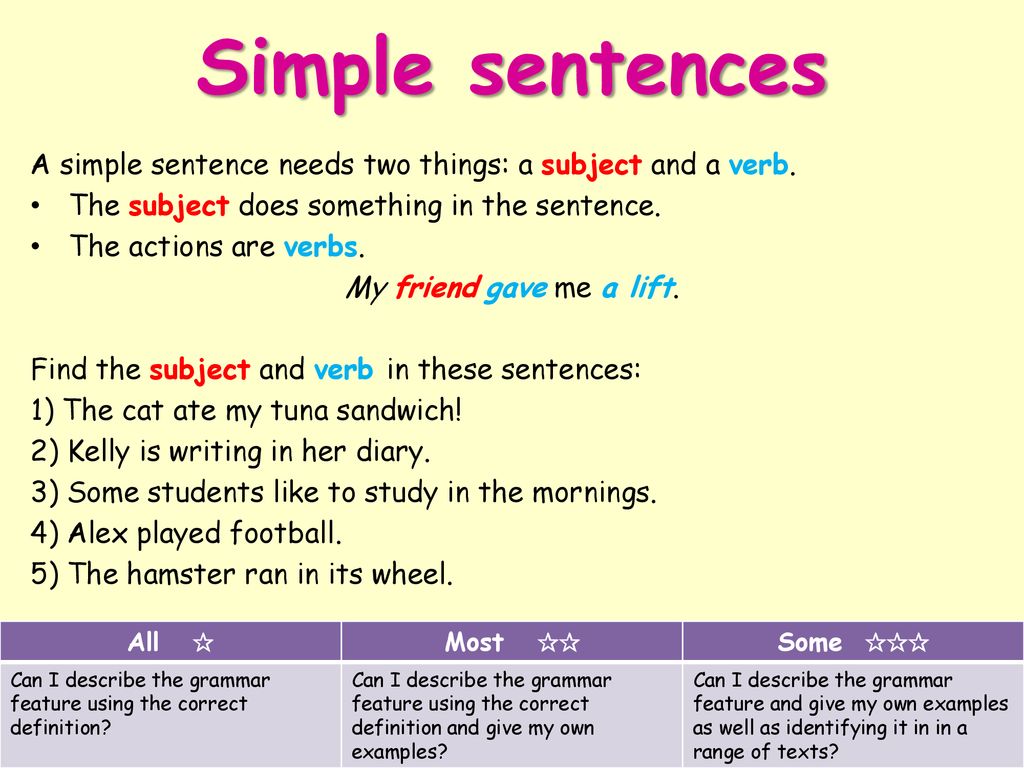
- Don't give me orders! - Don't order me!
- Don't touch it, please. - Don't touch it, please.
- Don't be so silly! - Don't be so stupid!
- Oh, come on, don't be mad. “Oh come on, don’t be mad.
The verb to let (to allow) is used to form an order, command directed at third parties. To let is also used to offer help or ask for permission.
- Let her go. - Let her go. (Let her go.)
- Let him do whatever he wants. Let him do whatever he wants.
- Let the children play with our dog. Let the children play with our dog.
- Let me help you. - Let me help you.
- Let us do this. - Let us do it.
Form let's (short for let us ) is used to suggest a joint action. In this sense, the full form let us is practically not used.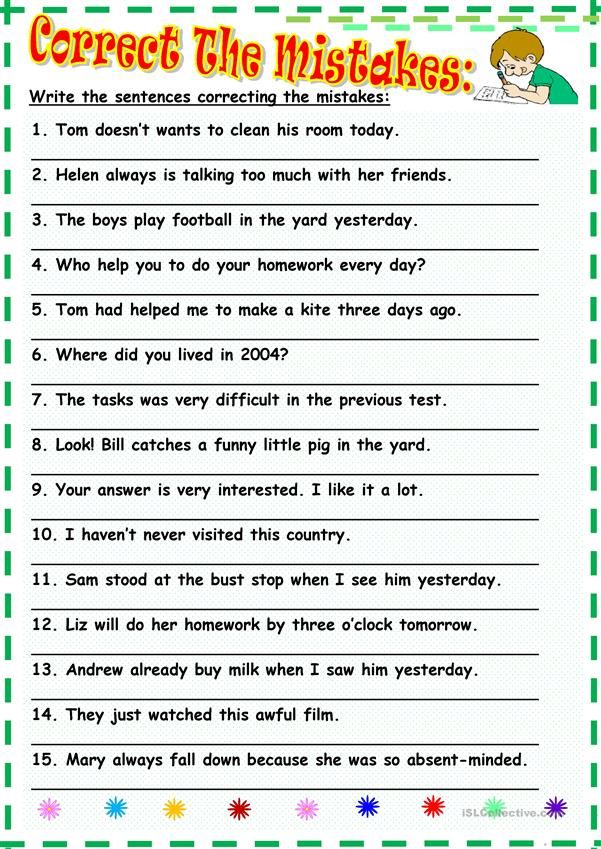
- Let's go for a walk! - Let's go for a walk!
- Let's play football outside. Let's play football outside.
- Let's invite Paul and Janice to the party. Let's invite Paul and Janice to the party.
Exclamatory sentences
Exclamatory sentence (exclamatory sentence) - a sentence expressing certain emotions or feelings. Often such sentences begin with the words what and how and end with the exclamation point .
In exclamatory sentences only direct word order is used. However, often a sentence can only consist of one or two words.
- Marvelous! - Wonderful! (also with a hint of sarcasm)
- How wonderful! - How wonderful!
- It's such a beautiful life! - What a beautiful life!
- What a lovely day it is. - What a wonderful day today.
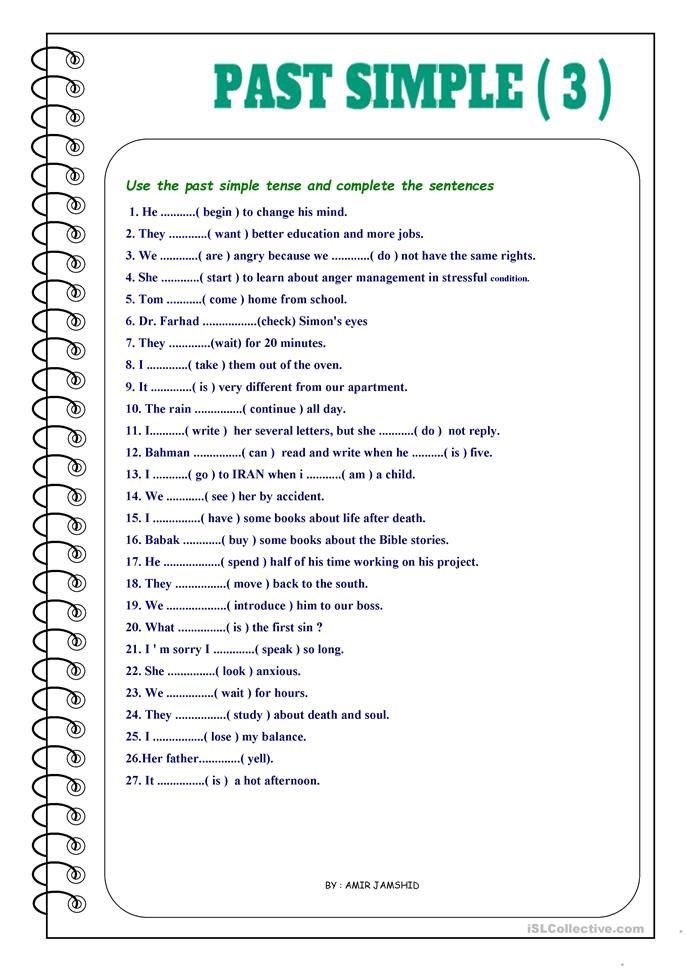
Types of simple sentences according to the structure
Simple sentences according to their structure (presence or absence of some members of the sentence) are divided into two-part and single-member , as well as on non-common and common .
Two-part sentence
Two-member sentence (two-member sentence) - a sentence in which there are both main members of the sentence (subject and predicate), or one of them is omitted, as it is clear from the context or the previous sentence.
- I don't like this book. - I don't like this book.
- We had a lot of fun in Brazil! Swimming in the ocean, drinking cocktails, dancing. We had a lot of fun in Brazil! We swam in the ocean, drank cocktails, danced.
Two-part sentences , in turn, are divided into complete and incomplete.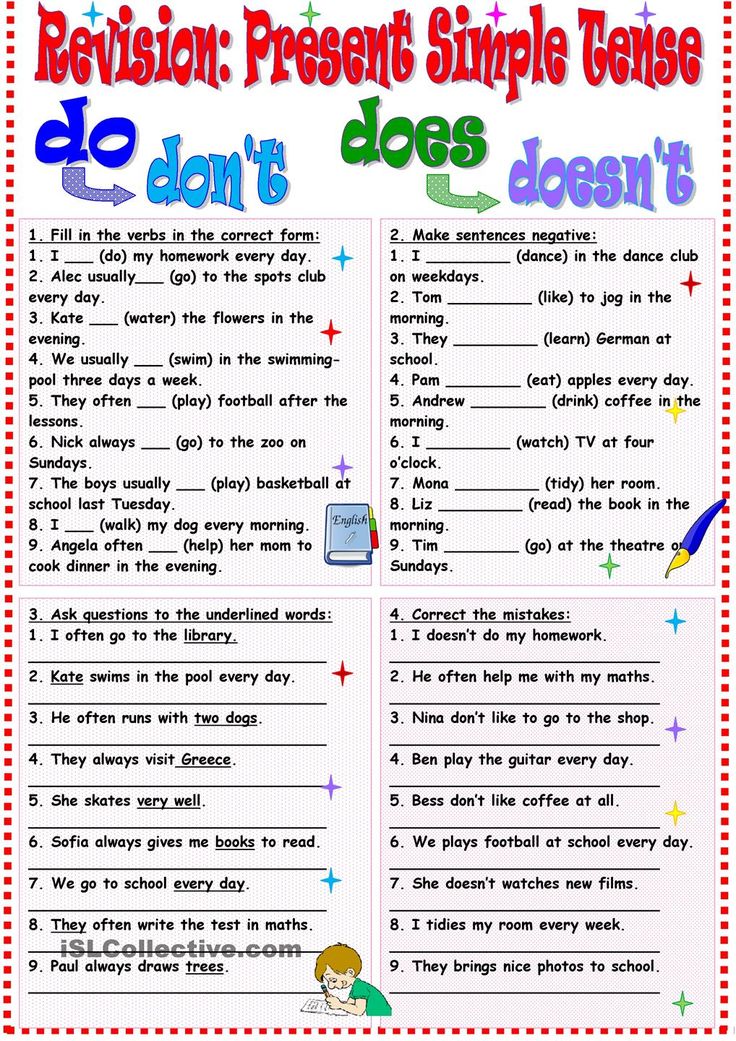 Complete sentence (complete sentence) - a two-part sentence in which there is both a subject and a predicate.
Complete sentence (complete sentence) - a two-part sentence in which there is both a subject and a predicate.
- The baby was smiling to us. The child smiled at us.
- We've bought a lot of candies for you. We bought you a lot of sweets.
- There was a big party at Caroline's place. Caroline had a big party.
Incomplete sentence Such sentences are often found in colloquial speech, dialogues.
- Who did that? Mark, of course. - Who did it? Of course Mark.
- What did he do? Nothing at all! - What did he do? Nothing at all!
- What were we doing? Just chilling and talking. – What did we do? They just relaxed and talked.
One-part proposal
One-member sentence (one-member sentence) - a special type of sentence in which there is only one main member of the sentence, and it cannot be unambiguously defined as a noun or a predicate.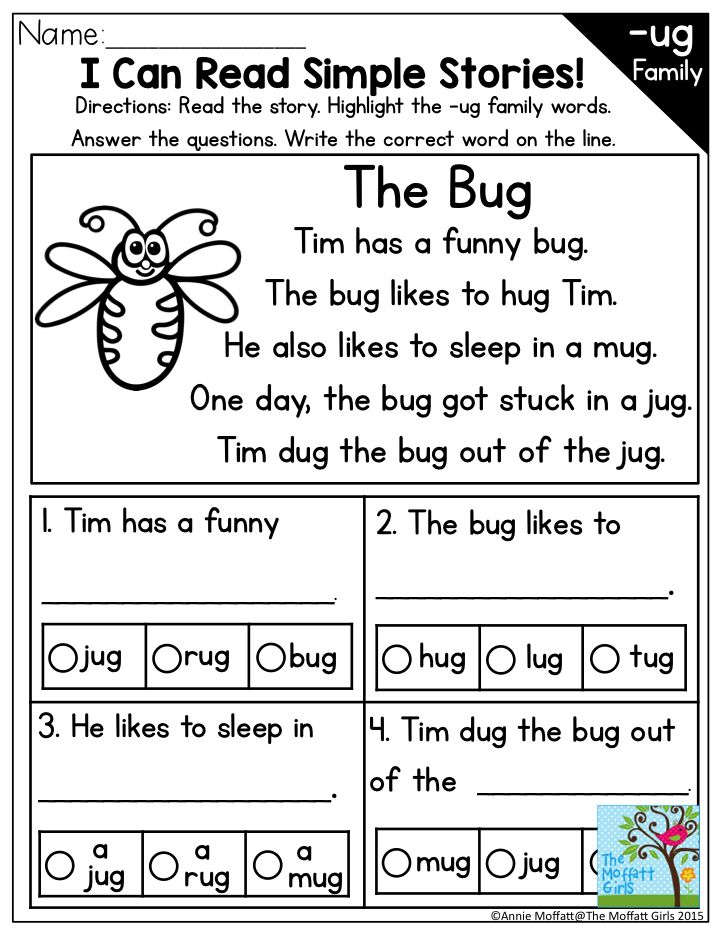 Sometimes such sentences are called sentence-phrases .
Sometimes such sentences are called sentence-phrases .
One-part sentences can be expressed using a noun or an infinitive of a verb.
- To be or not to be? - To be or not to be?
- To stay here – alone, forgotten by everyone. – To stay here – alone, forgotten by everyone.
- Spring! Birds singing, the sun shining, flowers in blossom. - Spring! The birds are singing, the sun is shining, the flowers are blooming.
Uncommon and common offerings
Unextended sentence (non-extended sentence) - a sentence in which there are no secondary members of the sentence, but there is only grammatical basis . Uncommon can be both one-part and two-part sentences.
- Spring. - Spring.
- To live! - Live!
- Don't talk! - Do not talk!
- She is sleeping. - She is sleeping.
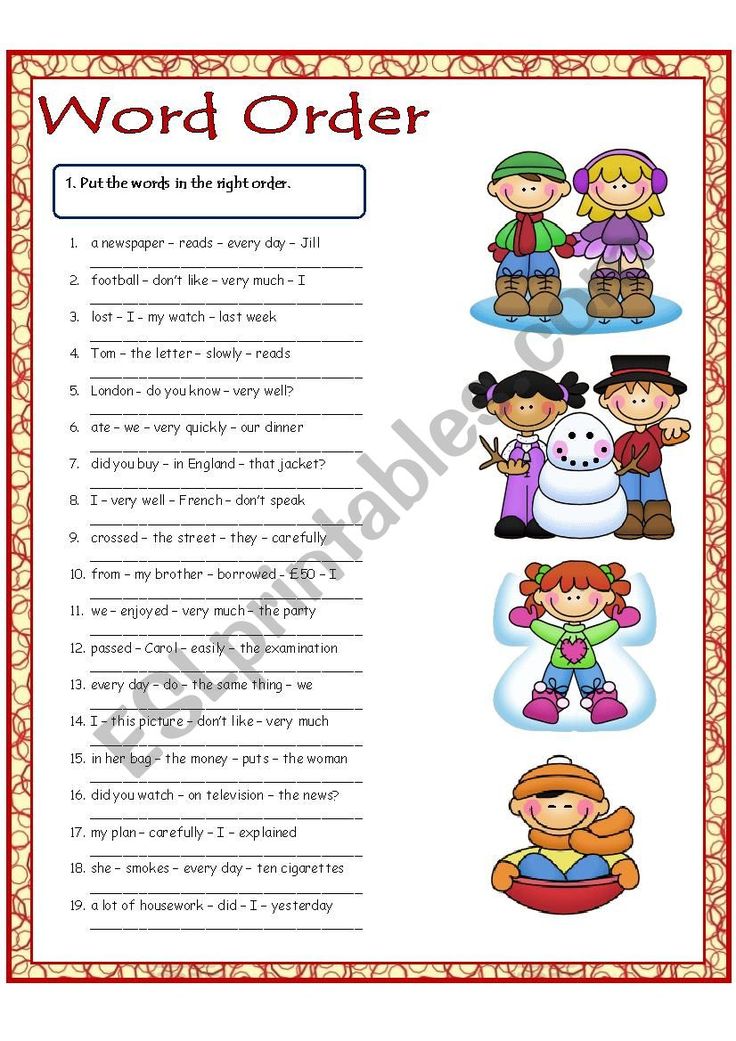
- Matt is a student. Matt is a student.
Extended sentence (common sentence) - a sentence in which there are one or more minor members of the sentence depending on the subject or predicate.
- Beautiful spring! - Beautiful spring!
- Don't talk to me now! - Don't talk to me now!
- My little sister is sleeping upstairs. My little sister sleeps upstairs.
- Matt is not really a good student. Matt is not a very good student.
Simple sentences in English - YES knowledge base
- home
- Information
- Materials for learning English
- Grammar
- Simple sentences in English - construction features
language Materials for learning EnglishSection AlphabetPhoneticsGrammarProverbs and sayingsAphorismsVideo lessonsBooksHow to start learning EnglishOnline lessonsJokesAbout online learningInteractive lessons
language
- Materials for learning English
Section
- Alphabet
- Phonetics
- Grammar
- Proverbs and sayings
- Aphorisms
- Video lessons
- Books
- How to start learning English
- Lessons online
- jokes
- About online learning
- Interactive lessons
From school lessons of the Russian language, we remember that a sentence is a separate statement that has semantic and intonational completeness. In terms of punctuation, a sentence ends with a dot, exclamation point, or question mark (or ellipsis). The sentence carries a specific message, question, exclamation, or call to action.
In terms of punctuation, a sentence ends with a dot, exclamation point, or question mark (or ellipsis). The sentence carries a specific message, question, exclamation, or call to action.
In English, as in Russian, sentences, depending on the number of grammatical bases (combinations of subject and predicate), are divided into simple and complex.
Simple sentences are a group of words that includes an object and a verb. A simple sentence expresses one complete thought, a specific statement or assumption. A simple sentence can express a feeling or emotion. A simple sentence is an independent structural and functional unit of any text. A complex sentence is a sentence that consists of two independent sentences linked together.
Simple English examples:
- My grandmother smokes a pipe. - My grandmother smokes a pipe.
- Tomorrow I will go with you in the village. Tomorrow I will go with you to the village.
- He is sitting on a chair and reading a newspaper.
He is sitting on a chair and reading a newspaper.
The above examples show that you can express the main idea of your thought with the help of a verb and an object. If we consider the third example, we can see that this sentence includes a connecting verb or object.
A sentence consisting of only one grammatical basis - subject and predicate, is called non-existent:
- The plane landed. - The plane has landed.
- The children have grown up. - The children have grown up.
A common sentence consists of a grammatical basis and secondary members (additions, circumstances, definitions):
- The plane landed safely. — The plane landed safely.
- The children have grown up quickly. — The children grew up quickly.
Features of sentence construction in English
In Russian, sentence members do not have a fixed word order. When saying, this order may change depending on the purpose, place of the statement. Compared with the Russian language, where the meaning does not change from the rearrangement of the members of the sentence, English is more organized, there is a clear word order. If you know the basic construction of an English sentence, you can easily build any phrase.
To begin with, we recall that in every sentence there are two main players:
- The subject is the person or thing that plays the main role in the sentence, this is the object about which the sentence says something.
- The subject answers the questions: "who? what?"
- Her college is set in the countryside. Her college is (where?) in the countryside.
- Yesterday I saw her with Jennifer. — (When?) Yesterday I saw her with Jennifer.
- They live in the village. - They live in the village.
- Do they live in the village? Do they live in the village?
- Will you go to Moscow? - Are you going to Moscow?
- Yes, I do. (No, I don't). - Not really).
- personal
- indefinite-personal
- impersonal.
- The rain thickened, and then passed away. The rain intensified and then stopped.
- This shop is closed till Friday. This store is closed until Friday.
- They say it will get warmer tomorrow.
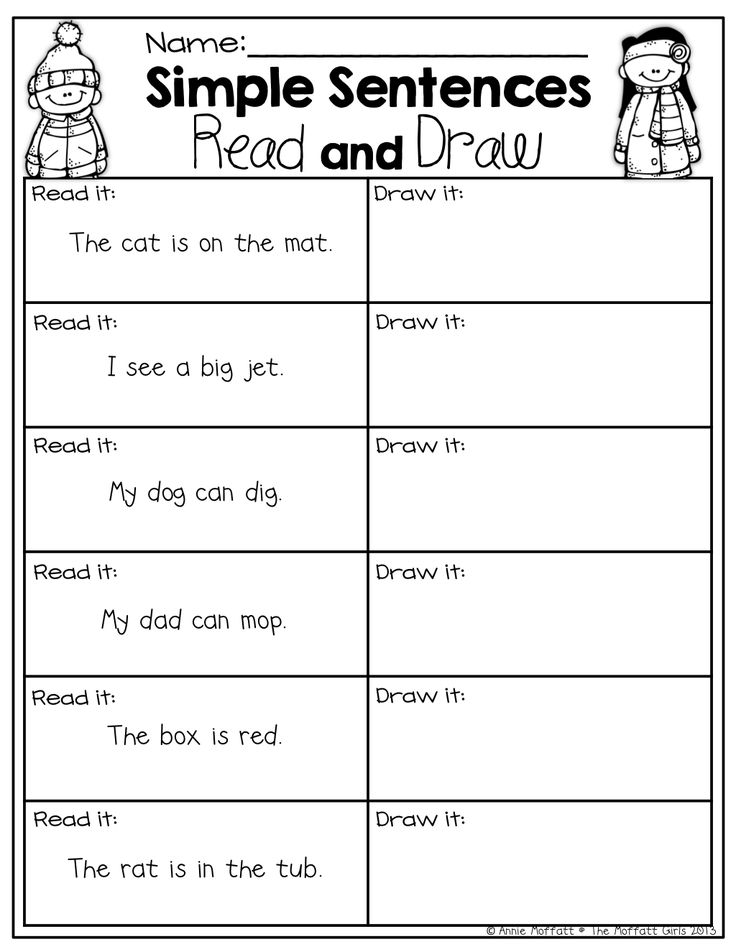 They say it will be warmer tomorrow.
They say it will be warmer tomorrow. - One cannot be sure of everything. “You can't be sure of everything.
- It is snowing heavily. - It's snowing heavily.
- It is raining. - It's raining.
The predicate is the second main member of the sentence, which denotes an action and shows at what time the action happened, is happening or will happen. The predicate answers the question "what to do?". In English, a predicate can contain two verbs - auxiliary and semantic. An auxiliary verb is used to express time.
The subject usually comes first in a sentence and is expressed by a pronoun (I - I, we - we, they - they, something - something, somebody - someone, nobody - nobody, etc.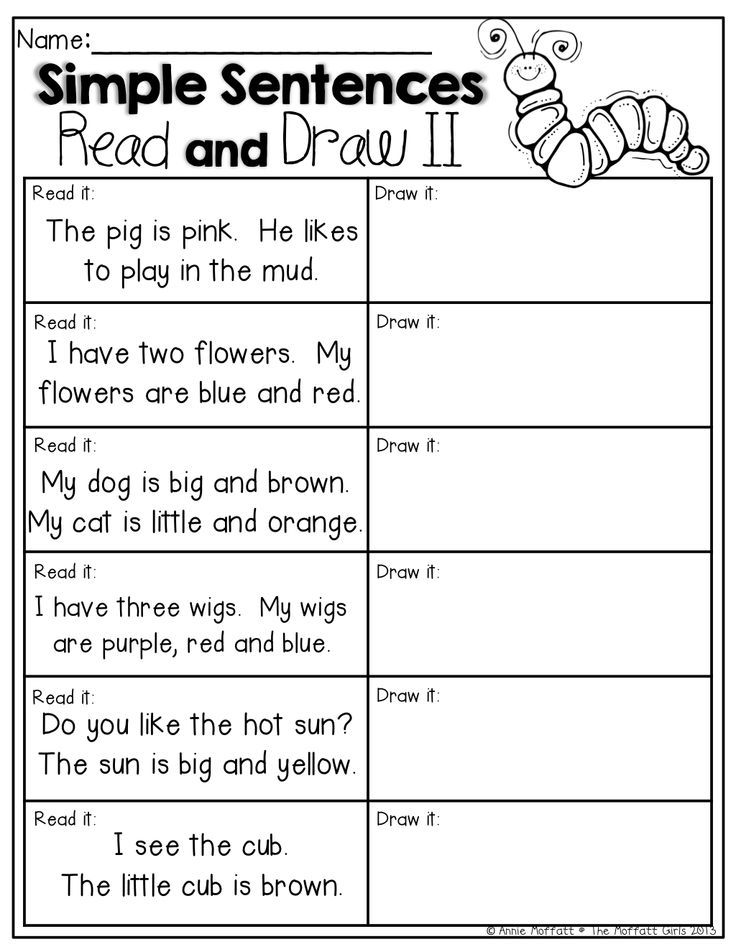 ) or a noun in the singular or plural number.
) or a noun in the singular or plural number.
Minor members add additional meaning to the sentence. These include: definition, addition and circumstance.
The definition answers the questions "what?"/"whose?" and is located next to the subject or object, describing its properties. A definition in English can be expressed by almost any part of speech (adjective, numeral, participle, etc.).
An attribute can be placed before the subject or object:
I see a beautiful car next to the house. — I see (what?) a beautiful car near the house.
The object comes after the predicate and answers any case question (except for the nominative). The complement can be direct (answers the questions of the accusative case - whom? what?) Or indirect (answers all other case questions). If two types of object are used at once in one sentence, the direct one goes first, and then the indirect one:
Andrew bought some flowers for Jennifer.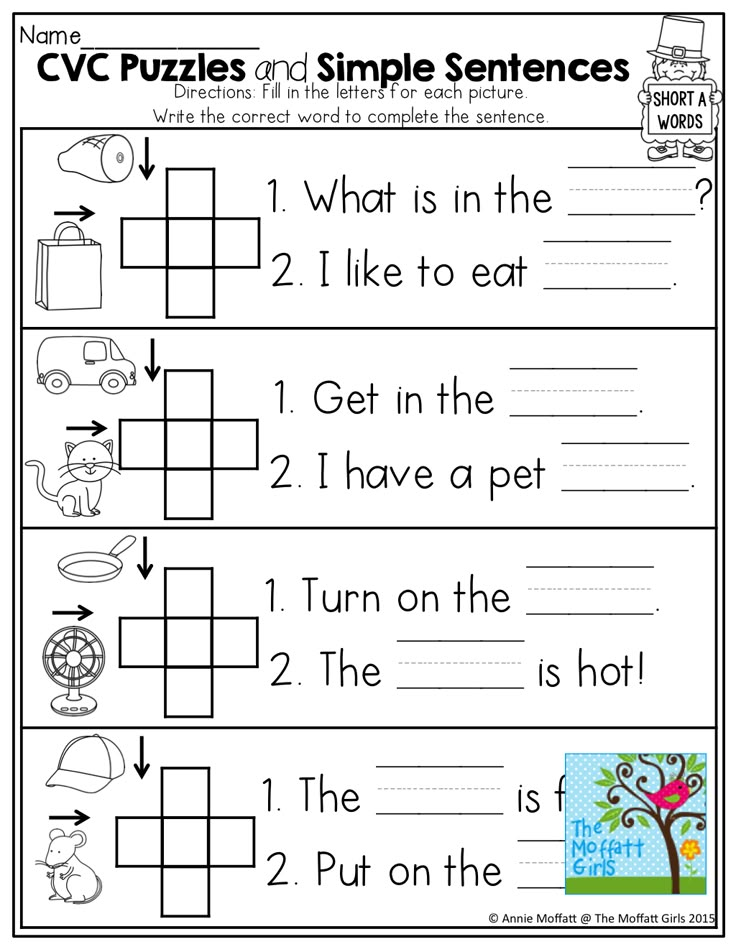 Andrey bought (what?) flowers (for whom/to whom?) for Jennifer.
Andrey bought (what?) flowers (for whom/to whom?) for Jennifer.
The circumstance can be placed at the beginning or at the end of the sentence. This part of speech indicates the place, reason, time, mode of action, etc., and answers the questions: "where? when? how? why?" The circumstance can be expressed by an adverb: tomorrow (tomorrow), slowly (slowly) or a noun with a preposition (in Egypt - in Egypt, behind the door - behind the door):
Depending on what particular features of the action characterize the circumstances, they are divided into several large groups: the circumstances of the place, time, causes, goals, etc.
Direct and reverse word order in a sentence
There are two basic word orders in English: direct and reverse. The direct is used in affirmative and negative sentences, the reverse is used in questions.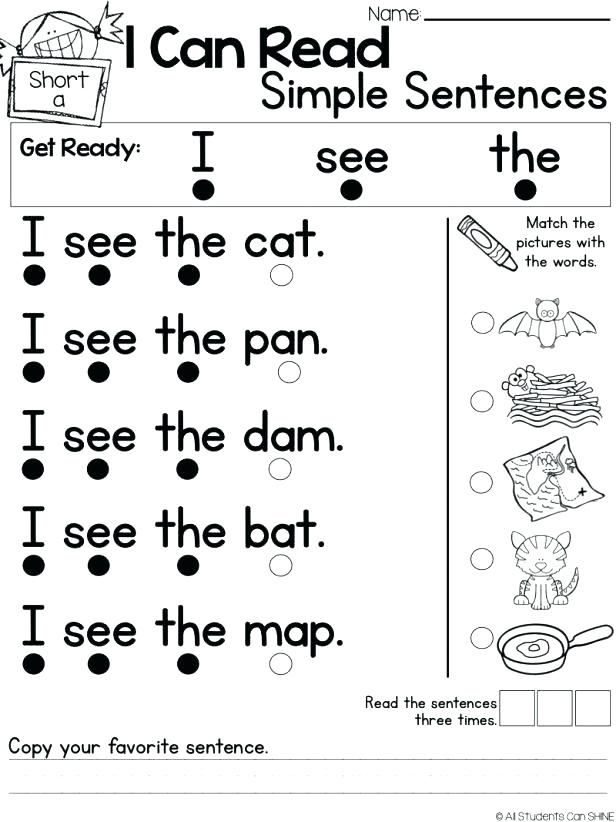
This is what direct word order looks like in an affirmative sentence:
Subject (actor) + predicate (action) + object (other members of the sentence)
Sometimes the circumstance may come first, and the main verb may have an auxiliary verb:
Yesterday (adverbial) I (subject) was learning (predicate) Chinese characters (addition with definition). Yesterday I learned Chinese characters.
My elder brother (subject with definition) will visit (predicate) me (object) in two weeks (circumstance). My elder brother will visit me in two weeks.
The negative sentence also uses direct word order. The particle "not" helps to emphasize the negation - an analogue of the Russian particle "not". In a negative sentence, there is always an auxiliary verb in which the particle "not" is added. The standard word order in a negative sentence is:
Adverb + Subject + Auxiliary verb with particle "not" + Main verb + Object
Yesterday (adverbial) I (subject) did not (auxiliary verb with negative particle not) learn (main verb) Chinese characters (adjective with definition). I didn't learn Chinese characters yesterday.
I didn't learn Chinese characters yesterday.
Structure of a simple interrogative sentence
If in Russian an interrogative sentence can be distinguished from a statement by intonation, then in English a question has a different (reverse) word order. To build an interrogative sentence, you need to swap the subject and predicate.
However, only a part of the predicate, namely the auxiliary verb, is placed in the first place. The main verb remains after the subject:
The standard word order in an interrogative sentence is:
Auxiliary verb + Subject + Main verb + Object + Adverb +?
Did you bring the book to the library last week? Did you return the book to the library last week?
Will (auxiliary verb) my elder brother (subject with attribute) will visit (predicate) me (object) in two weeks (circumstance)? Will my older brother visit me in two weeks?
There are many ways to answer a question in English, but you can't answer a short "yes" or "no" because it's considered a snub.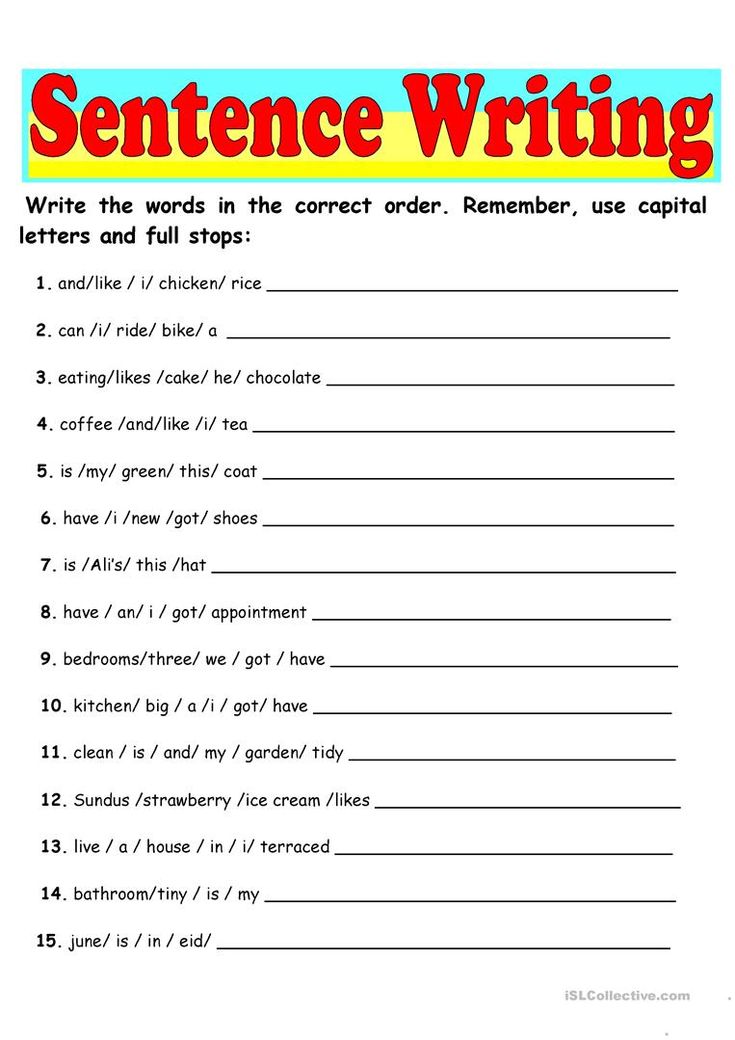 A correctly composed answer consists of a subject and an auxiliary verb:
A correctly composed answer consists of a subject and an auxiliary verb:
Personal, indefinitely personal and impersonal offers
Depending on the nature of the subject, sentences in English are divided into 3 types:
In personal sentences, the subject denotes a certain person, object or abstract concept:
If the predicate in a sentence denotes an action that concerns people in general, any person or an indefinite number of persons, then such a sentence is called indefinitely personal. Usually in such sentences, indefinite pronouns or definite pronouns in an indefinite personal sense act as the subject:
If the predicate has nothing to do with a person, or with an object, or with an abstract concept, then such a sentence is called impersonal. In Russian, an impersonal sentence does not have a subject (for example, the sentence: "It is getting evening."), however, in English there is a formal subject, which is expressed by the pronoun it, it is placed at the beginning of the sentence:
The English language is strict and very conservative, like the English themselves, so there must be a fixed word order in sentences. It is important to follow the existing rules and patterns so that written and oral speech is literate.
Did you like the article? Share it with friends
Select your city
Moscow
- Belomorskaya
- Kuzminki
- Kuntsevo
- New Cheryomushki
- Paveletskaya
- Prague
- Prokshino
- Solntsevo
- Khovrino
Moscow
region
- Balashikha
- Zhukovsky
- Lytkarino
- Lyubertsy
- Podolsk
- Pushkino
- Ramenskoe
- Gangway
Vladimir
region
- Alexandrov
Site search
Site search
Enroll
in courses
By clicking on the "Send request" button, I consent to the processing of personal data and agree to the privacy policy
Enroll
for Mock Exam
By clicking on the "Send request" button, I consent to the processing of personal data and I agree with the privacy policy
Leave your number
and we will call you back at a convenient time for you
Please introduce yourself * Contact phone number *Time 10:0011:0012:0013:0014:0015:0016:0017:0018:0019:00
Time 10:0011:0012:0013:0014:0015:0016:0017:0018:0019:00
By clicking on the "Call me back" button, I consent to the processing of personal data and agree to the privacy policy
Thank you, your application has been sent
Our manager will contact you shortly.